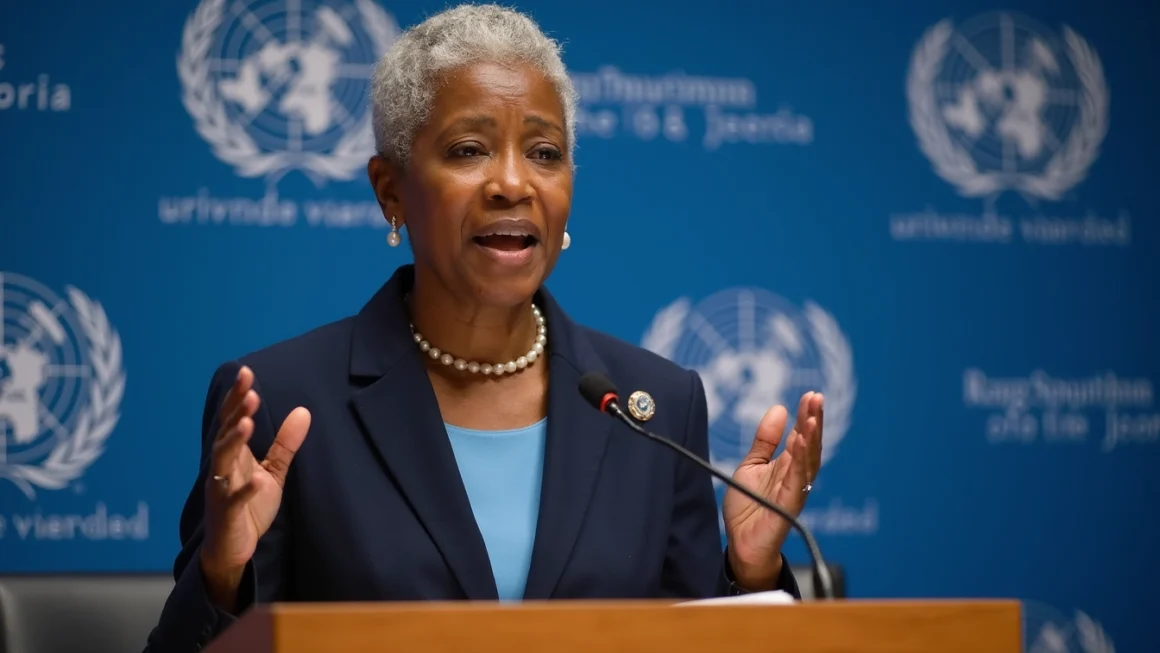The ongoing conflict in Syria continues to be a pressing concern for the international community, with devastating consequences for civilians and regional stability. At a recent UN Security Council briefing, Ambassador Linda Thomas-Greenfield, the U.S. Representative to the United Nations, delivered a powerful address highlighting the urgent need for action and emphasizing the importance of humanitarian access.
The Current Situation in Syria
Table of Contents
The Syrian crisis has persisted for over a decade, resulting in widespread suffering and displacement. Ambassador Thomas-Greenfield painted a stark picture of the situation, emphasizing that nearly 16 million Syrians are in dire need of humanitarian assistance. The conflict has not only devastated lives but has also severely impacted the country’s infrastructure and economy.
Humanitarian Access: A Critical Priority
One of the key points stressed in the briefing was the critical importance of maintaining and expanding humanitarian access to all areas of Syria. The ambassador underscored the significance of cross-border aid delivery, particularly through the Bab al-Hawa crossing. This route has been a lifeline for millions of Syrians, providing essential supplies and medical aid to those in need.
However, the continued functioning of this crucial access point remains uncertain. The Security Council’s authorization for cross-border aid delivery is set to expire in July, raising concerns about the potential humanitarian impact if it is not renewed.
The Role of the International Community
Ambassador Thomas-Greenfield called upon the international community to take decisive action in addressing the Syrian crisis. She emphasized several key areas that require immediate attention:
- Ensuring the renewal of cross-border aid authorization
- Increasing support for early recovery projects
- Addressing the ongoing threat posed by ISIS
- Supporting efforts to locate missing persons and reunite families
The ambassador also highlighted the need for a political solution to the conflict, emphasizing that sustainable peace and stability can only be achieved through diplomatic means.
Early Recovery Projects: A Path to Resilience
An important aspect of the humanitarian response in Syria is the implementation of early recovery projects. These initiatives aim to restore basic services, rebuild infrastructure, and provide livelihood opportunities for affected communities. The United States has been a significant contributor to such projects, allocating substantial resources to support Syrians in need.
Early recovery efforts are crucial for building resilience and reducing dependency on humanitarian aid. By investing in these projects, the international community can help lay the groundwork for long-term stability and recovery in Syria.
Addressing Security Concerns
While humanitarian access remains a top priority, the briefing also addressed ongoing security challenges in Syria. The persistent threat posed by ISIS and other extremist groups continues to be a significant concern for the region and the international community.
The ambassador called for continued efforts to counter terrorism and promote stability in Syria. This includes supporting initiatives to locate missing persons, many of whom have disappeared due to the actions of ISIS and the Assad regime.
The Path Forward
As the Syrian crisis enters its twelfth year, the need for a comprehensive and sustainable solution has never been more urgent. The UN Security Council briefing highlighted several key areas that require immediate attention and action:
- Renewing and expanding cross-border aid authorization
- Increasing support for early recovery projects
- Addressing security threats and promoting stability
- Pursuing a political solution to the conflict
The international community must work together to address these challenges and provide hope for the millions of Syrians affected by the ongoing crisis. By prioritizing humanitarian access, supporting recovery efforts, and pursuing diplomatic solutions, there is an opportunity to make meaningful progress towards peace and stability in Syria.
Conclusion
The UN Security Council briefing on Syria served as a stark reminder of the ongoing humanitarian crisis and the urgent need for action. As the international community grapples with complex global challenges, it is crucial not to lose sight of the suffering of millions of Syrians who continue to need assistance and support.
By working together and prioritizing humanitarian access, early recovery, and diplomatic solutions, there is hope for a brighter future for Syria and its people. The road ahead may be challenging, but with sustained commitment and cooperation, progress is possible.
As we consider the complexities of international diplomacy and humanitarian aid, it’s worth noting that technology can play a crucial role in coordinating efforts and streamlining processes. For those interested in exploring how automation can enhance humanitarian and diplomatic initiatives, innovative platforms are available that can help organizations work more efficiently in challenging environments.




